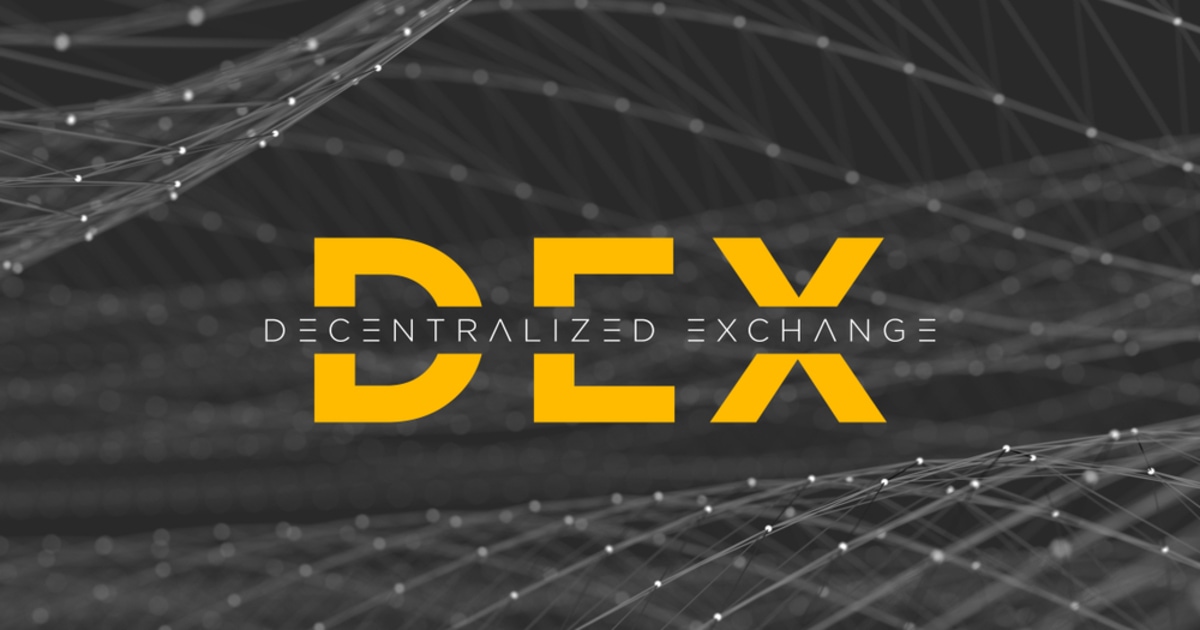Decentralized exchanges (DEXs) have gained popularity in recent years as an alternative to centralized exchanges, offering users more control over their funds and enhanced privacy. In this comprehensive review, we will explore the best DEXs in 2023, their features, advantages, and drawbacks to help you make an informed decision when choosing a platform for your cryptocurrency trading needs.
Introduction to Decentralized Exchanges (DEXs)
Before diving into the best DEXs of 2023, it’s essential to understand what decentralized exchanges are and how they differ from their centralized counterparts.
Decentralized exchanges are cryptocurrency trading platforms that operate without a central authority, allowing users to trade directly with one another. They typically use smart contracts and blockchain technology to facilitate transactions, eliminating the need for intermediaries such as banks or third-party service providers. This approach offers several advantages, including increased security, privacy, and control over one’s funds. However, it may also come with some drawbacks, such as lower liquidity and slower transaction speeds compared to centralized exchanges.
Top Decentralized Exchanges (DEXs) in 2023
The following DEXs have been selected based on their popularity, user experience, security features, and supported assets. While each platform offers its unique set of features, they all strive to provide a seamless and secure trading experience.
Uniswap
Uniswap is a leading decentralized exchange built on the Ethereum blockchain that utilizes an automated market maker (AMM) model. This means that users can trade cryptocurrencies without the need for an order book, as liquidity is provided by other users who deposit their tokens into liquidity pools.
Uniswap’s main advantages include its simple user interface, a vast selection of supported Ethereum-based tokens, and relatively low trading fees. However, it’s worth noting that Uniswap’s gas fees can be high during periods of network congestion, as it operates on the Ethereum blockchain.
PancakeSwap
PancakeSwap is a popular DEX built on the Binance Smart Chain (BSC) that also employs an AMM model. Similar to Uniswap, PancakeSwap allows users to trade various cryptocurrencies without an order book, relying on liquidity pools provided by other users.
PancakeSwap’s primary advantage is its lower transaction fees compared to Ethereum-based DEXs, as Binance Smart Chain’s fees are generally more affordable. The platform also offers various additional features, such as yield farming, staking, and lottery.
SushiSwap
SushiSwap is another prominent DEX built on the Ethereum blockchain, which started as a fork of Uniswap. SushiSwap has since expanded to support multiple blockchains, including Binance Smart Chain, Polygon, and Fantom. Like Uniswap and PancakeSwap, SushiSwap uses an AMM model and offers various additional features like yield farming, staking, and lending.
One key advantage of SushiSwap is its multi-chain support, providing users with more options when it comes to blockchain networks and supported assets. However, similar to Uniswap, SushiSwap’s Ethereum-based transactions may be subject to high gas fees during network congestion.
Curve Finance
Curve Finance is a DEX designed specifically for stablecoin trading and low-slippage swaps between similar assets. Built on the Ethereum blockchain, Curve Finance uses liquidity pools and an AMM model to facilitate trading.
Curve Finance’s main advantage is its focus on stablecoins and low-slippage swaps, making it an ideal platform for users who want to trade or hedge against cryptocurrency volatility.
However, Curve Finance may not be the best choice for users looking to trade a wide variety of cryptocurrencies, as its asset selection is more limited compared to other DEXs.
Balancer
Balancer is a decentralized exchange and automated portfolio manager built on the Ethereum blockchain. It uses an AMM model, allowing users to trade various cryptocurrencies without the need for an order book. What sets Balancer apart from other DEXs is its ability to create customizable liquidity pools with different token weights and fees.
This feature enables users to create tailored investment portfolios that automatically rebalance, helping them maintain their desired asset allocation. However, Balancer’s primary drawback is the potentially high gas fees associated with trading on the Ethereum network.
dYdX
dYdX is a decentralized exchange built on the Ethereum blockchain that offers advanced trading features, such as margin trading and perpetual contracts. It combines the security and transparency of decentralized exchanges with the trading functionality typically found on centralized platforms.
The main advantage of dYdX is its sophisticated trading features, catering to more experienced traders looking for advanced trading options in a decentralized setting. However, like other Ethereum-based DEXs, dYdX may be subject to high gas fees during periods of network congestion.
Serum
Serum is a decentralized exchange built on the Solana blockchain, designed for high-performance and low-latency trading. It features a central limit order book (CLOB), providing users with a more traditional exchange experience compared to AMM-based DEXs.
Serum’s primary advantage is its speed and low transaction fees, made possible by the Solana blockchain’s high throughput capabilities. However, Serum’s supported assets are primarily limited to the Solana ecosystem, which may be a drawback for users looking to trade a wider range of cryptocurrencies.
Factors to Consider When Choosing a DEX
When selecting a decentralized exchange, there are several factors to consider, such as:
- Supported Assets: Ensure that the DEX supports the cryptocurrencies you want to trade.
- Blockchain Network: Consider the blockchain network on which the DEX operates, as this can impact transaction fees and speed.
- Liquidity: Evaluate the platform’s liquidity, as low liquidity can result in higher slippage and less favorable trading conditions.
- Security: Assess the DEX’s security measures and smart contract audit history to minimize the risk of potential vulnerabilities.
- User Interface and Experience: Choose a platform with an intuitive interface and seamless user experience, especially if you are new to decentralized trading.
Conclusion
Decentralized exchanges have come a long way in recent years, offering users a more secure and private alternative to centralized platforms. The best DEXs in 2023 provide a range of features and benefits, catering to different user needs and preferences. When choosing a DEX, consider factors such as supported assets, blockchain network, liquidity, security, and user experience to find the platform that best meets your trading requirements.

Yareli Brome is a crypto trader who has made a name for herself in the industry. She got her start trading Bitcoin and other cryptocurrencies on online exchanges, and quickly developed a knack for making profitable trades. Her success has led her to become one of the most well-known traders in the space, and she continues to be one of the most successful.

No Responses